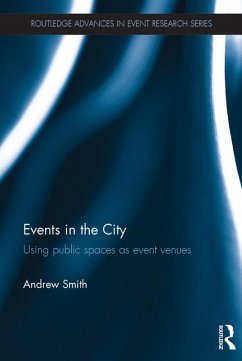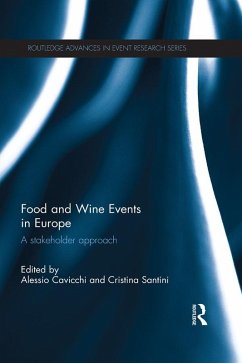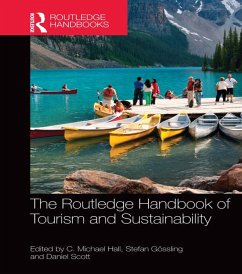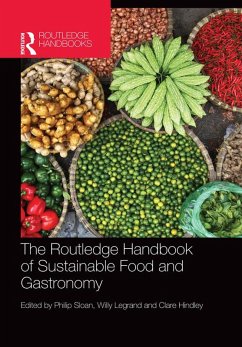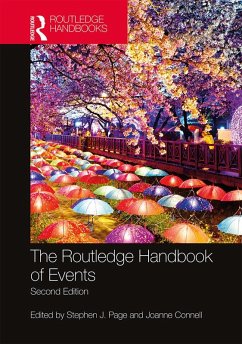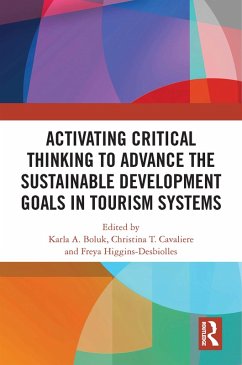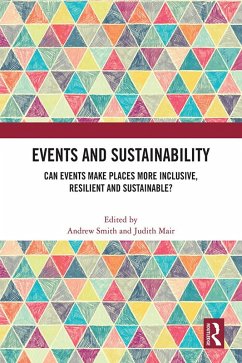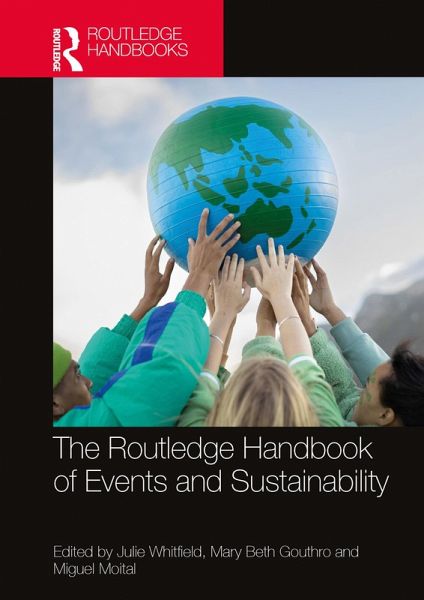
The Routledge Handbook of Events and Sustainability (eBook, ePUB)
Versandkostenfrei!
Sofort per Download lieferbar
47,95 €
inkl. MwSt.
Weitere Ausgaben:

PAYBACK Punkte
24 °P sammeln!
This book provides a comprehensive overview and systematic guide to the current state of knowledge on events and sustainability. Offering multidisciplinary insights from leading scholars, the book explores contemporary issues, challenges and trends.The book starts with an introduction by the editors, defining key concepts and issues, as well as a discussion of the sustainable event debates. Specifically commissioned and carefully selected individual contributions are divided into eight main sections which critically explore the key areas of events and sustainability, providing expert-led insig...
This book provides a comprehensive overview and systematic guide to the current state of knowledge on events and sustainability. Offering multidisciplinary insights from leading scholars, the book explores contemporary issues, challenges and trends.
The book starts with an introduction by the editors, defining key concepts and issues, as well as a discussion of the sustainable event debates. Specifically commissioned and carefully selected individual contributions are divided into eight main sections which critically explore the key areas of events and sustainability, providing expert-led insights into timely and relevant topics such as social and cultural responsibility, economic sustainability, environmental sustainability, sustainable events and education, inclusivity, supply side and technology and sustainability. The book concludes with a discussion by the editors of the debates in event sustainability, with a view to identify emerging issues and future research agendas.
This handbook will be of pivotal interest to scholars, students and policy-makers working in events, tourism and hospitality management.
The book starts with an introduction by the editors, defining key concepts and issues, as well as a discussion of the sustainable event debates. Specifically commissioned and carefully selected individual contributions are divided into eight main sections which critically explore the key areas of events and sustainability, providing expert-led insights into timely and relevant topics such as social and cultural responsibility, economic sustainability, environmental sustainability, sustainable events and education, inclusivity, supply side and technology and sustainability. The book concludes with a discussion by the editors of the debates in event sustainability, with a view to identify emerging issues and future research agendas.
This handbook will be of pivotal interest to scholars, students and policy-makers working in events, tourism and hospitality management.
Dieser Download kann aus rechtlichen Gründen nur mit Rechnungsadresse in A, B, BG, CY, CZ, D, DK, EW, E, FIN, F, GR, HR, H, IRL, I, LT, L, LR, M, NL, PL, P, R, S, SLO, SK ausgeliefert werden.




